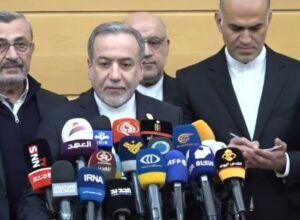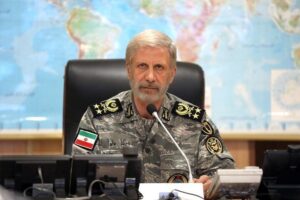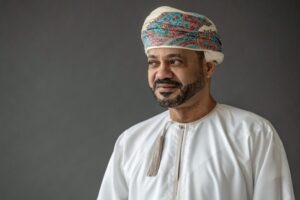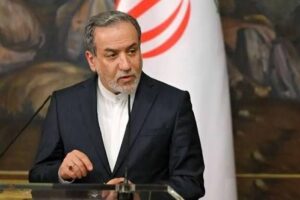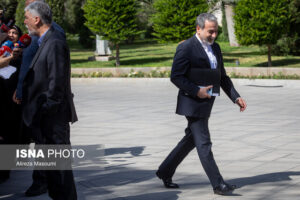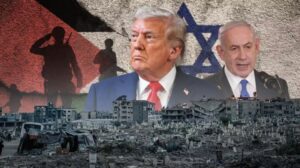Aref on Friday delivered an address to a meeting of the Eurasian Intergovernmental Council, held in Kyrgyzstan’s Cholpon-Ata city.
In his speech, the Iranian vice president hailed the finalization of a free trade agreement between Iran and the EAEU.
He said the deal has provided unparalleled opportunities for the economies of the member states and the business people and has also paved the way for sustainable economic development and stronger constructive interaction across the region.
In parallel with the implementation of the free trade agreement, Iran is prepared to promote cooperation with the Eurasian Economic Union’s members in the other key spheres, such as energy and commerce, modern technologies, and transportation, the vice president added.
He expressed confidence that mutual cooperation will serve the EAEU goals.
The Eurasian Economic Union is an international economic organization focused on regional integration. It was established by the Treaty on the Eurasian Economic Union in 2014 to foster the free movement of goods, services, capital, and labor.
Iran’s strategy is non-intervention of foreigners in region
Mohammad Reza Aref, speaking on Friday morning in a meeting with Russian Prime Minister Mikhail Mishustin on the sidelines of the Eurasian Economic Union (EAEU) summit in Kyrgyzstan, referred to developments in the Caucasus and said that Tehran welcomes any understanding and cooperation aimed at de-escalation and fostering friendly and close relations among regional and neighboring countries.
Aref stressed that, like Russia, the Islamic Republic of Iran opposes US unilateralism in the world, and that the strategy of multilateralism, as well as regional security and stability, should be pursued with the help of the countries in the region.
Referring to Iran’s nuclear negotiations, he said that Iran has always sought dialogue and confidence-building regarding its peaceful nuclear activities, but Western countries have, from the outset, turned Iran’s nuclear issue into a political project. He emphasized that Iran has never sought non-peaceful use of technologies, especially nuclear technology.
Condemning the crimes of the Zionist regime in Gaza, the First Vice President stated that the Zionists seek to consolidate their aggression in Gaza and deny the residents their right to live, and that cooperation must be strengthened to prevent these crimes.
He also stressed the need to deepen and expand Tehran–Moscow relations in various fields, including energy, tourism, transport, railways, and corridors.
Mikhail Mishustin, for his part, said that the implementation of the free trade agreement between Iran and the Eurasian Economic Union will have an impact on increasing the scope of Iran’s relations with regional countries in various fields, and that, in this regard, establishing the North–South Corridor is of fundamental importance in deepening these relations.
The Russian prime minister, referring to developments in the Caucasus region, emphasized that all countries in the region must have relations based on the principle of good neighborliness, and that together they can build the region’s future.
Russia, Iran discuss Rasht-Astara railway construction
Russia is carrying out survey work for the construction of the Rasht-Astara railway section on land plots already purchased by the Iranian government, Russian Deputy Prime Minister said, on the sidelines of EAEU summit.
The purchase of the remaining land was the subject of negotiations during the meeting between Russian Prime Minister Mikhail Mishustin and Iranian First Vice President Mohammad Reza Aref in Cholpon-Ata, Kyrgyzstan.
“We discussed the details of the railway’s construction on the Rasht-Astara section, about how the land acquisition is proceeding there. In fact, we have already started work there, technical surveys are underway on the land plots purchased by the Iranian government,” Overchuk said.
The talks also covered the implementation of the free trade agreement between Iran and the Eurasian Economic Union (EAEU). Overchuk recalled that the agreement entered into force in May.
“This is a very important document, as it essentially opens up opportunities to trade at zero rates on more than 90% of items. Accordingly, both the Eurasian Economic Union and the Islamic Republic of Iran are mutually interested in ensuring that this agreement delivers returns. We discussed how to set up the implementation of this agreement; it is clear that this will take time. But in principle, we already see growth in mutual trade with Iran today,” he said.

